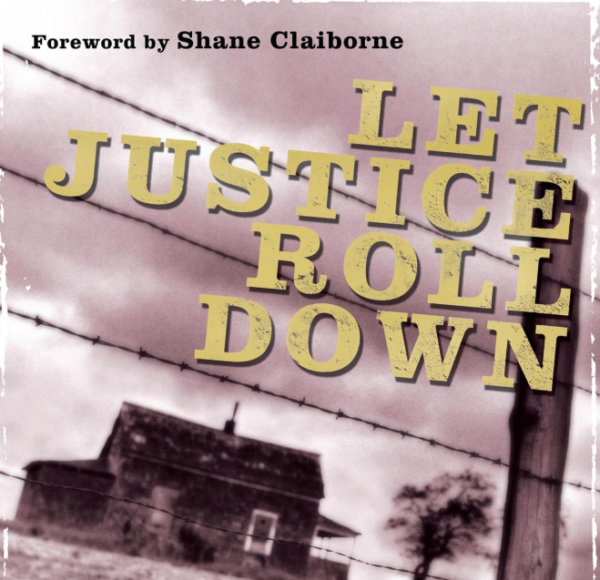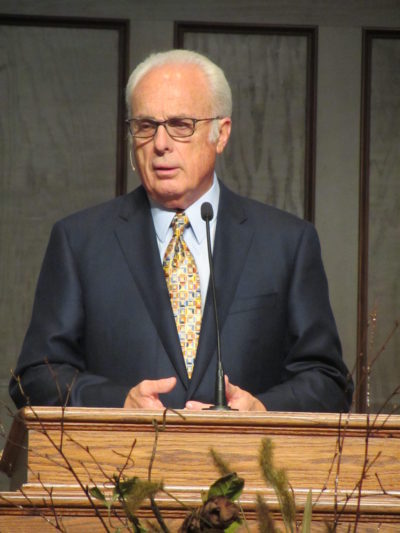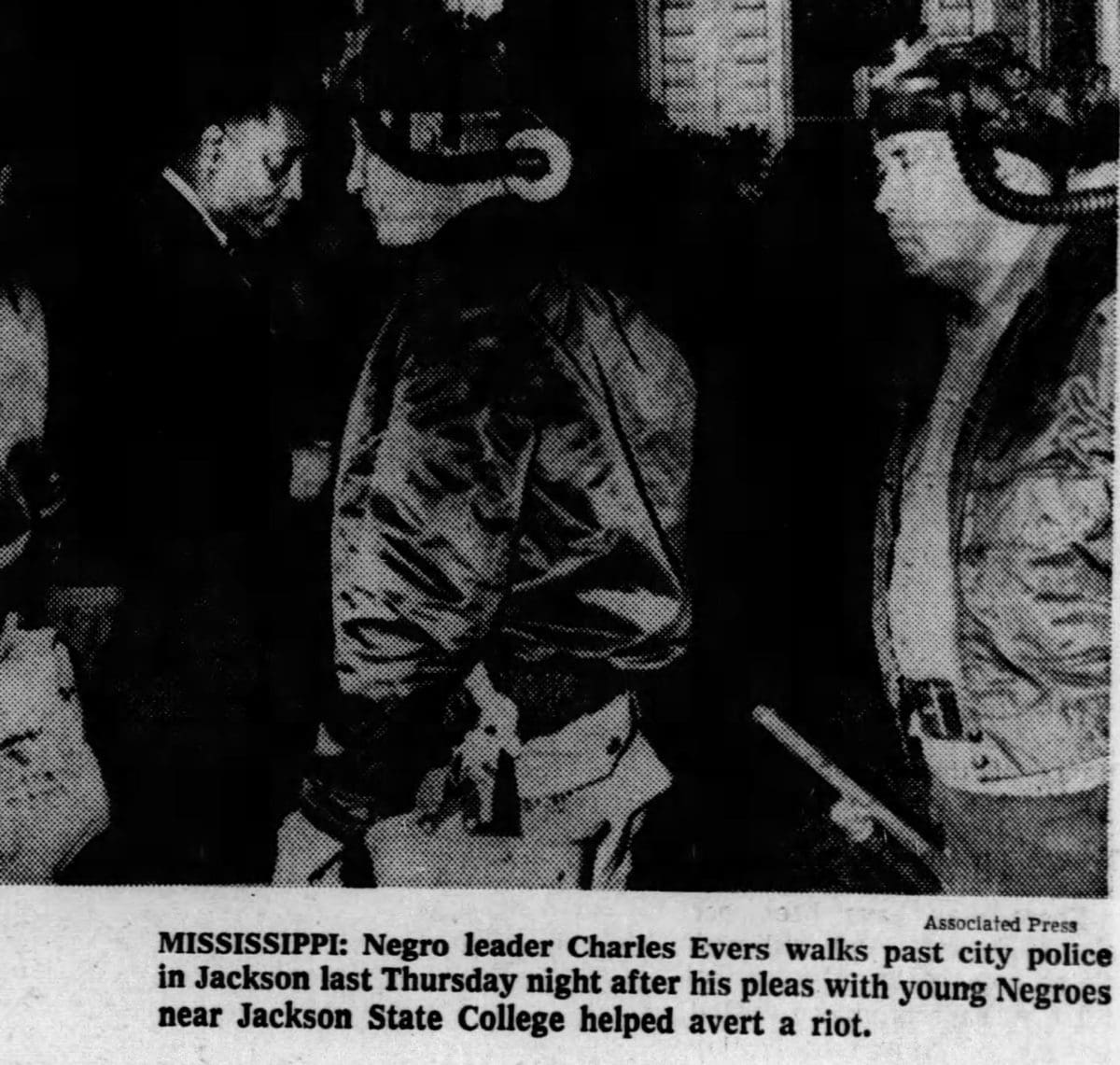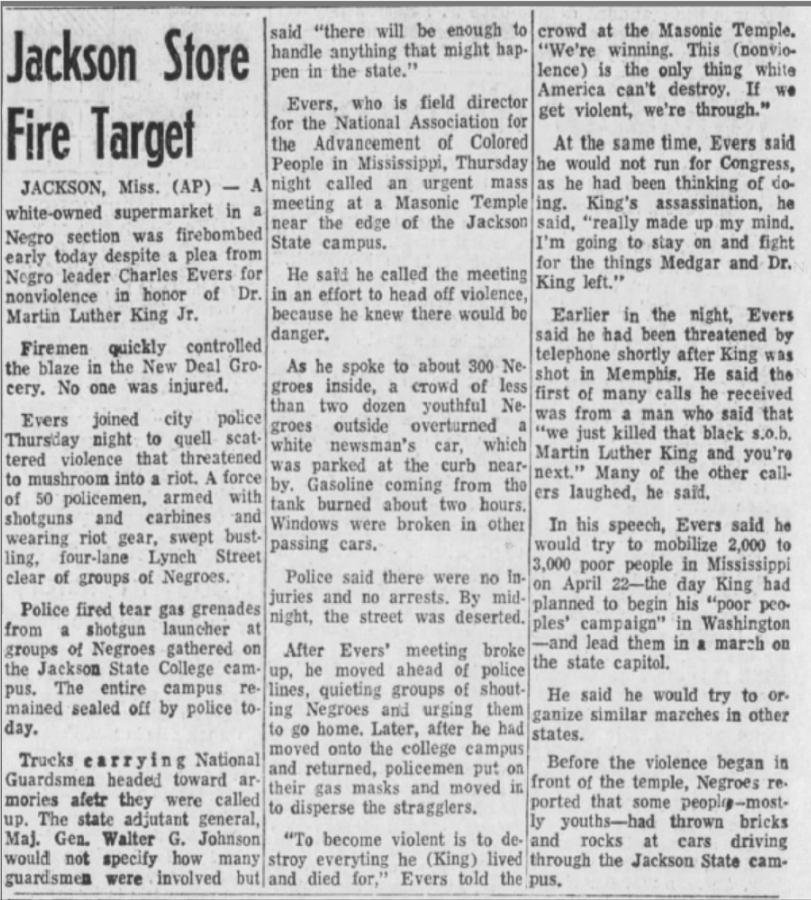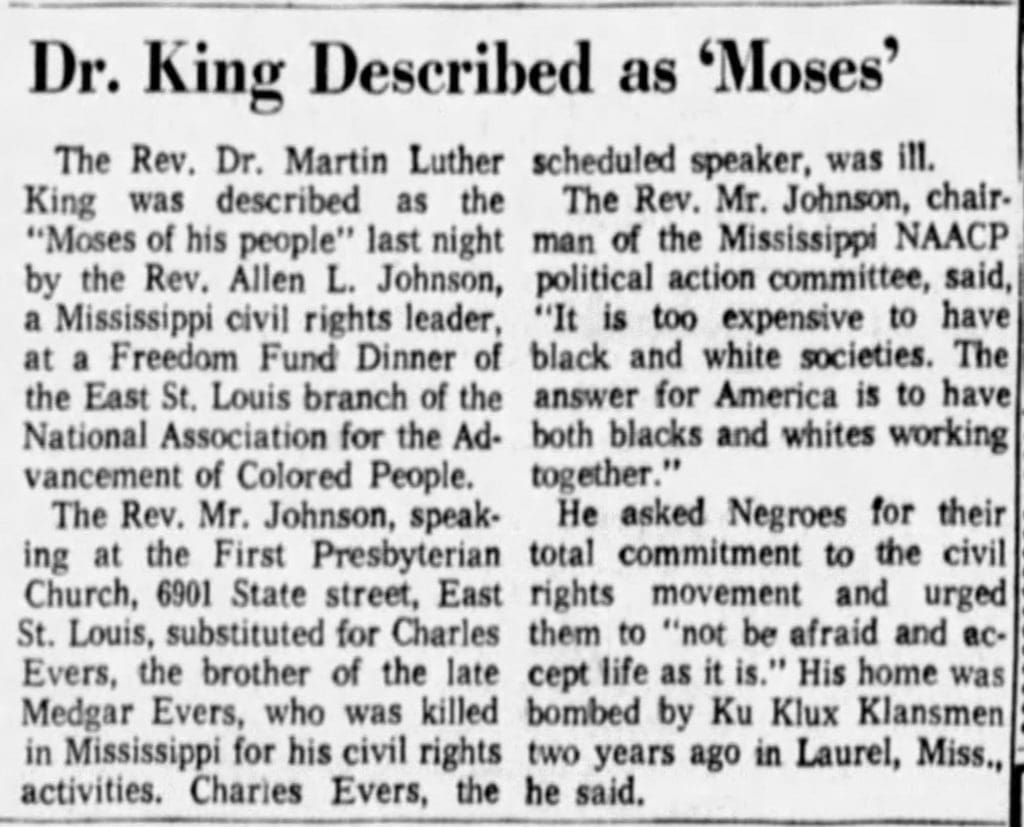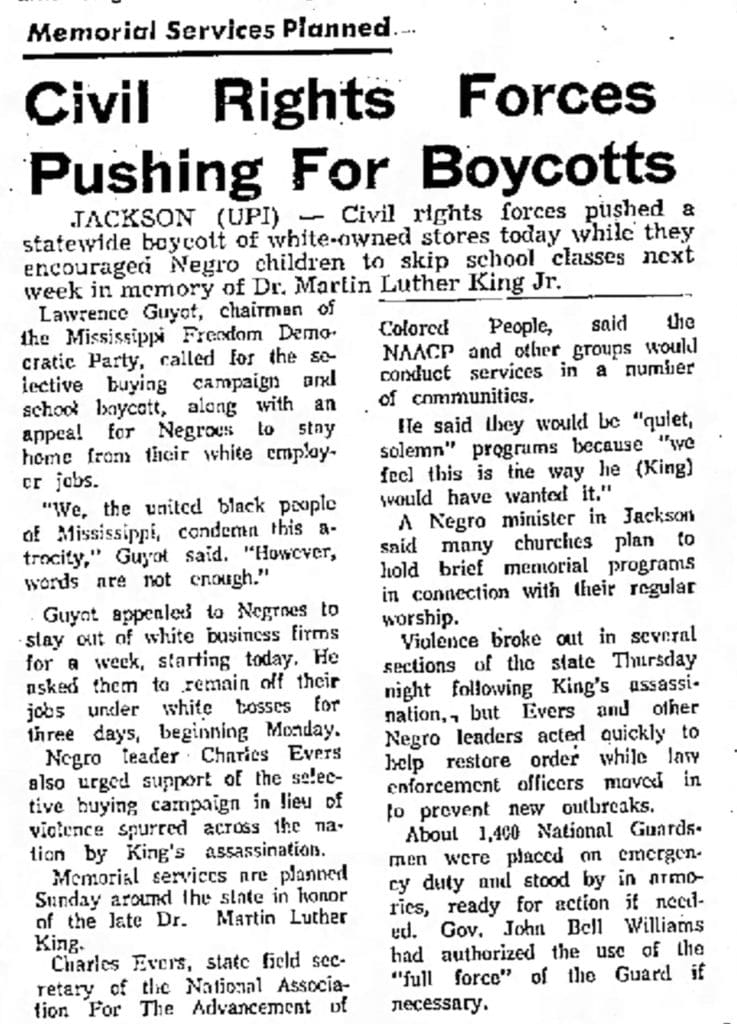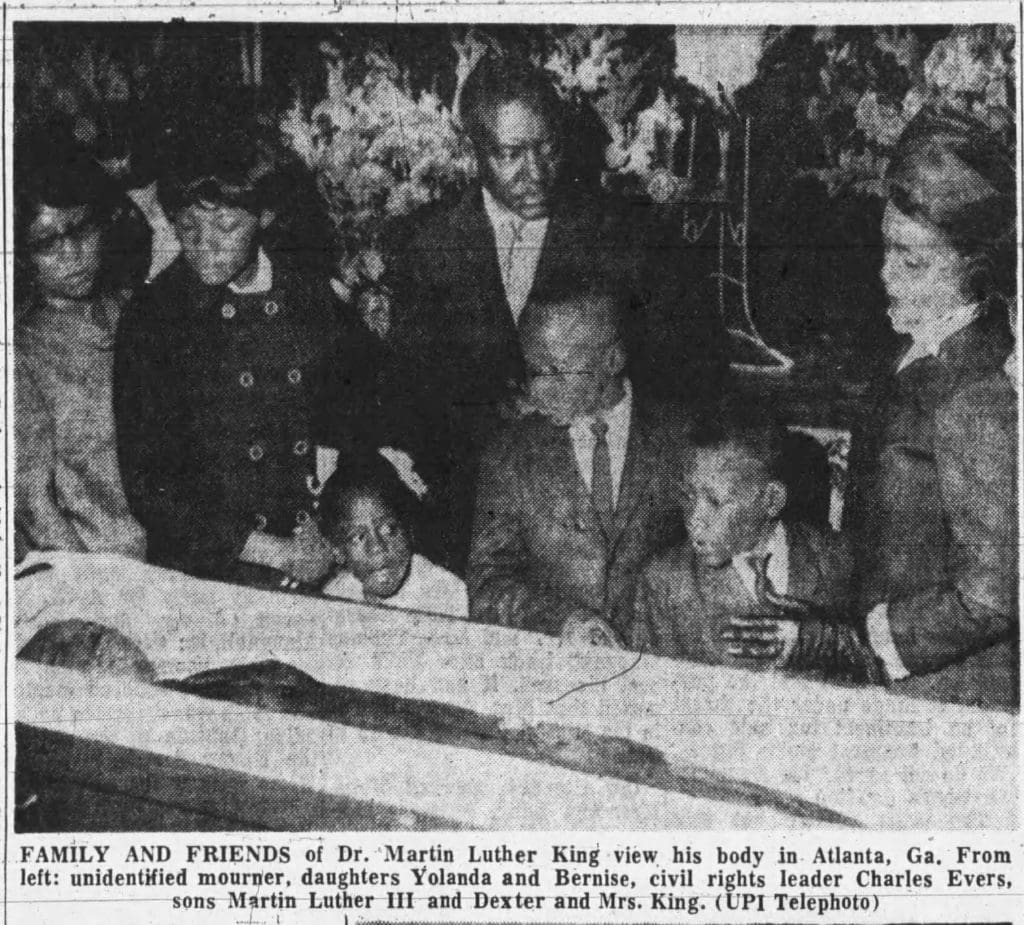For many years, John MacArthur has told a story about the night Martin Luther King, Jr. died. Although the details vary slightly with the telling, the summary is that he, John Perkins and some other civil rights leaders traveled from Jackson, MS to Memphis, TN the night MLK was murdered. They went to the Lorraine Motel and stood where King was killed. They also went to the nearby boarding house where James Earl Ray carried out the shooting.
A February 2019 investigative report filed in the online NOQ Reports questioned MacArthur’s story via the testimony of civil rights leader Charles Evers. MacArthur named Evers as one of the civil rights leaders present in Jackson that night and implied that Evers went with the group to Memphis. Evers denied knowing MacArthur and denied going to Memphis with him or anyone the night King was murdered. In fact, news accounts of the day make it improbable that Evers could have made that trip.
One crucial eyewitness who has remained silent is civil rights icon John Perkins. Perkins was with MacArthur in Mississippi that night and MacArthur has indicated that they were together for the trip. Perkins did not speak on the record for the NOQ Reports article and declined to speak directly to me. However, he did authorize his daughter Deborah Perkins to speak for his Foundation about the issue. Deborah Perkins told me in a March phone interview that Charles Evers’ denial of MacArthur’s story was correct. I also interviewed Evers who told me that he didn’t go to Memphis that night. My summary of those two interviews was as follows:
In summary, when John Perkins’ representative had the chance to confirm John MacArthur’s story, she declined to comment; then she spontaneously affirmed the accuracy of the person who said it wasn’t true. This is what I can offer at this time. What it means is surely in the eye of the beholder.
Now comes Brent Detwiler who has taken just about everything written on this subject and compiled it into a lengthy article which he says is the most important one he’s ever written. If interested in this subject, it is worth reviewing since it brings together what has been written and adds some new correspondence.
Did I Make Effort to Talk to Perkins?
My point with this post is to comment on one small aspect of that correspondence from Phil Johnson, Executive Director of Grace to You, the ministry of John MacArthur. Johnson appears to act as MacArthur’s public voice. At least on this matter, Johnson has been doing that. In an email attributed to Johnson, Johnson says the following to Detwiler:
My original challenge to Mr. Throckmorton stands for you: If you seriously want to investigate John MacArthur’s account, you need to ask John Perkins one simple question—namely, “Is it true that you went with John MacArthur to the Lorraine Motel in the wake of the MLK assassination?” Throckmorton made no attempt to get an answer to that question, but published a piece full of evil insinuations anyway—to his own embarrassment.
Here is the background for this paragraph. In prior correspondence, Johnson suggested that I contact Perkins with the question: “Is it true that you went with John MacArthur to the Lorraine Motel in the wake of the MLK assassination?” I told him at that time that I had already contacted John Perkins through Perkins’ website. I wanted to ask Perkins this exact question. Knowing that MacArthur and Perkins were friends, I asked Johnson if he had more direct contact information. I did not get a reply to this question.
And so Johnson’s assertion to Detwiler is not true. I asked Perkins via his Foundation if he had accompanied John MacArthur to Memphis in the wake of MLK’s assassination. Perkins himself did not reply, but a representative from his foundation did and said that someone from the foundation would reply after they talked to Dr. Perkins following his return from a business trip. In addition, they wanted me to submit examples of articles that I had published in the past. I then heard from a representative that Perkins Foundation co-president Deborah Perkins would talk to me after her father returned. The results of that interview are reported here.
In fact, I made significant efforts to get an answer to that question and Johnson knows it because we discussed it via email. Despite the fact that Deborah Perkins is John Perkins’ daughter, the co-president of the Foundation, and spoke as a representative of the Perkins Foundation, Johnson called Deborah Perkins’ answer “hearsay.”
Furthermore, my article contained very little in the way of insinuation, evil or otherwise. I wrote:
I asked for response or comment from Johnson and Rev. MacArthur (through Johnson) but they didn’t response by the time I published this. I will be happy to add any response they offer.
Without a lengthier interview with Dr. Perkins, I still don’t know in detail what happened that night or if there was ever a trip to Memphis (within a week, a month?). Perhaps everybody involved has a fuzzy memory for the events of the time.
In summary, when John Perkins’ representative had the chance to confirm John MacArthur’s story, she declined to comment; then she spontaneously affirmed the accuracy of the person who said it wasn’t true. This is what I can offer at this time. What it means is surely in the eye of the beholder.
It is perplexing to me how Mr. Johnson can get an “evil insinuation” out of this. It is also simply wrong — and I believe Mr. Johnson should correct his statement now that it is public — that I made no effort to contact Perkins. I did, and I still hope to hear Dr. Perkins personal statement about what he did the night Martin Luther King, Jr. was assassinated. I believe his daughter spoke officially and with the authority given to her by her father, but there are those who will only heed something from Dr. Perkins himself.
